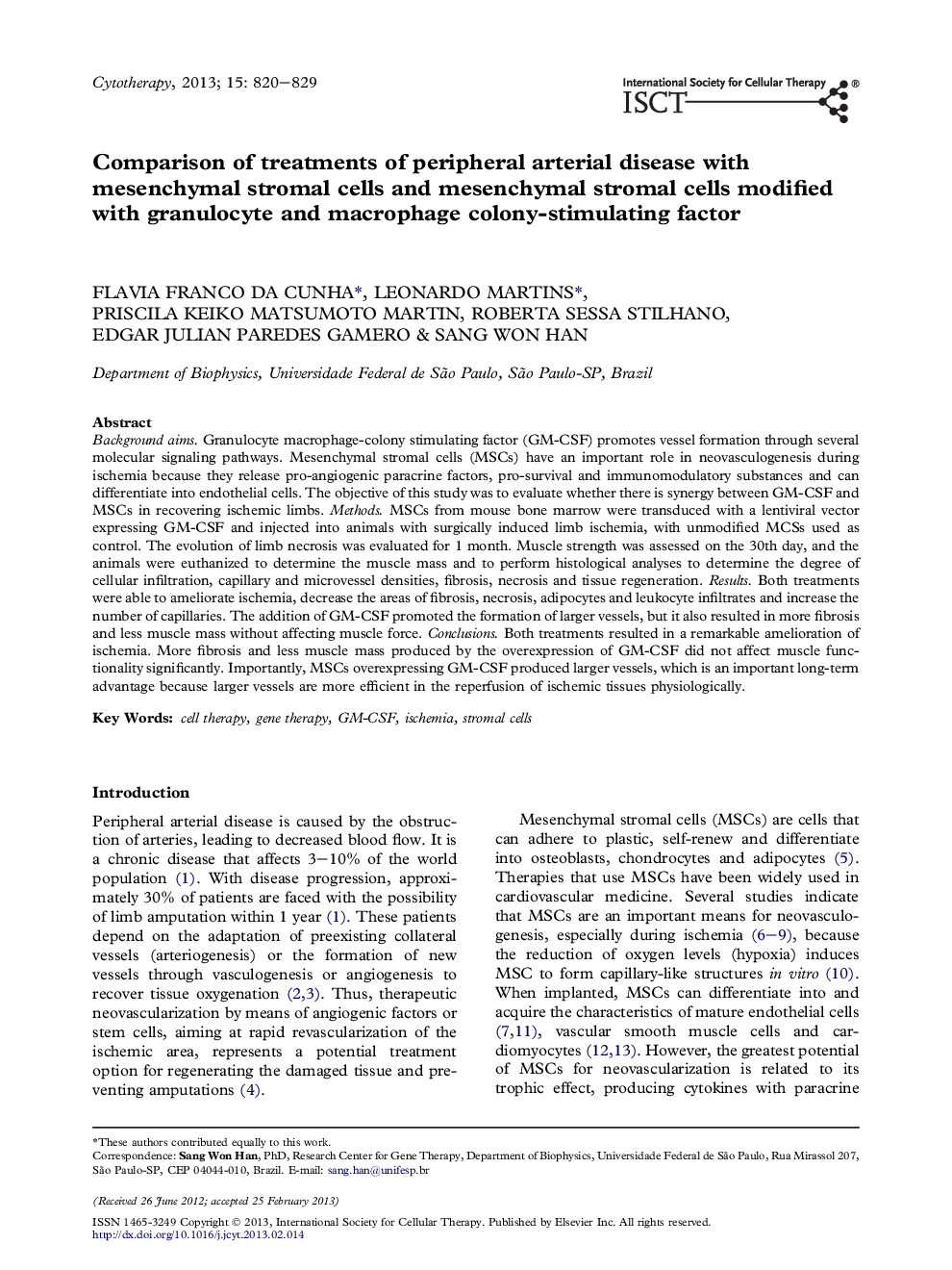| کد مقاله | کد نشریه | سال انتشار | مقاله انگلیسی | نسخه تمام متن |
|---|---|---|---|---|
| 2171361 | 1093486 | 2013 | 10 صفحه PDF | دانلود رایگان |

Background aimsGranulocyte macrophage-colony stimulating factor (GM-CSF) promotes vessel formation through several molecular signaling pathways. Mesenchymal stromal cells (MSCs) have an important role in neovasculogenesis during ischemia because they release pro-angiogenic paracrine factors, pro-survival and immunomodulatory substances and can differentiate into endothelial cells. The objective of this study was to evaluate whether there is synergy between GM-CSF and MSCs in recovering ischemic limbs.MethodsMSCs from mouse bone marrow were transduced with a lentiviral vector expressing GM-CSF and injected into animals with surgically induced limb ischemia, with unmodified MCSs used as control. The evolution of limb necrosis was evaluated for 1 month. Muscle strength was assessed on the 30th day, and the animals were euthanized to determine the muscle mass and to perform histological analyses to determine the degree of cellular infiltration, capillary and microvessel densities, fibrosis, necrosis and tissue regeneration.ResultsBoth treatments were able to ameliorate ischemia, decrease the areas of fibrosis, necrosis, adipocytes and leukocyte infiltrates and increase the number of capillaries. The addition of GM-CSF promoted the formation of larger vessels, but it also resulted in more fibrosis and less muscle mass without affecting muscle force.ConclusionsBoth treatments resulted in a remarkable amelioration of ischemia. More fibrosis and less muscle mass produced by the overexpression of GM-CSF did not affect muscle functionality significantly. Importantly, MSCs overexpressing GM-CSF produced larger vessels, which is an important long-term advantage because larger vessels are more efficient in the reperfusion of ischemic tissues physiologically.
Journal: Cytotherapy - Volume 15, Issue 7, July 2013, Pages 820–829